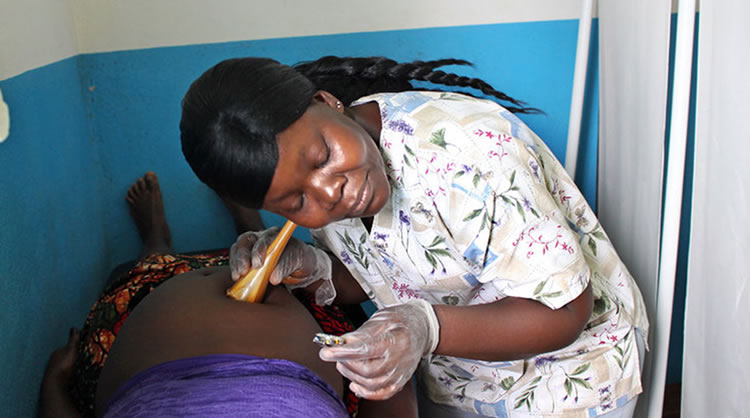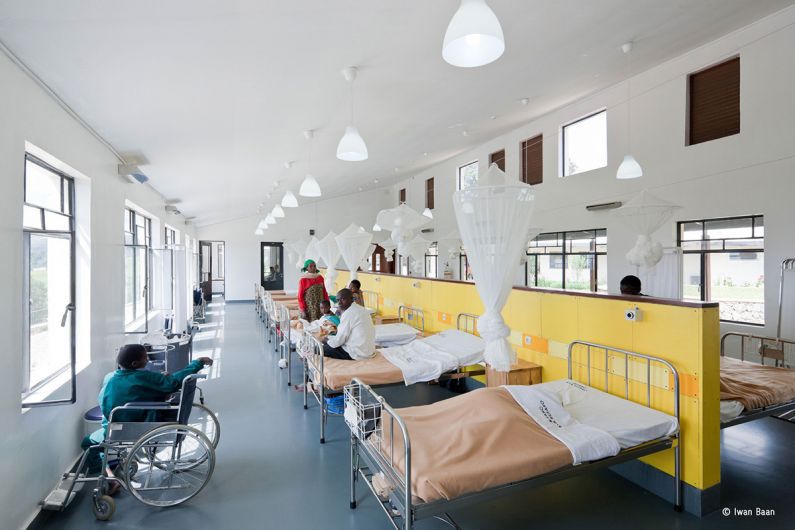Warning: Invalid argument supplied for foreach() in /home1/redcare1/public_html/wp-content/themes/uplift/swift-framework/content/sf-post-formats.php on line 89

Currently, Nigeria is the highest contributor to maternal mortality in Central and Western Africa and contributes 14% to the global maternal mortality rate. According to UNICEF, a woman’s chance of dying from pregnancy and childbirth in Nigeria is 1 in 13. And in 2015, mortality ratio for Nigeria was 814 deaths per 100,000 live births. A joint report by UNICEF, WHO, United Nation Population, UNFPA and World Bank revealed a staggering increase in maternal deaths in Nigeria between 2011 (55,000) and 2015 (58,000).

Maternal mortality as defined by the World Health Organization is the death of a woman while pregnant or within 42 days of termination of pregnancy, irrespective of the duration and site of the pregnancy, from any cause related to or aggravated by the pregnancy or its management but not from accident or incidental issues.

Some of the factors contributing to these numbers include; education, culture and lack of access to healthcare and skilled health workers. The widespread presence also depends on factors such as, living in an urban or rural area, socio-economic status and geo-political zone. There is a great disparity between the numbers presented in the northern part of Nigeria compared to other parts with the North-east as the highest with 1,549 deaths per 100,000 live births while the South-west has 165 deaths per 100,000 live births.

A research conducted revealed post-partum hemorrhage as a leading cause of maternal deaths, closely followed by hypertensive disorders, especially eclampsia. One of the biggest lapses amongst the medical professionals is the inability to detect these complications in time or notice early signs. It is disheartening that a lot of these deaths could have been prevented, as essential interventions reaching babies and women timely would have averted most of the deaths recorded. The coverage and quality of healthcare services continue to fail these women, and currently, less than 20 percent of health facilities offer emergency obstetric care with only 35 percent deliveries being attended to by skilled attendants.
Complications that arise during pregnancy require prompt access to quality obstetric services equipped with life-saving drugs, including antibiotics, and the ability to provide blood transfusions needed to perform Caesarean sections or other surgical interventions.

Improved funding of the health sector is very pivotal in addressing the deficiencies in the infrastructure that characterizes the maternal health system, thus enhancing the services being offered to the women. Without appropriate funding, healthcare reforms cannot be implemented.
The 2018 budget for Nigeria has just 3.9% allocation to the health sector, which is a drop from the 4.16% and 4.23% allocated in 2016 and 2017 respectively. This means only N1,888 will be spent on each citizen the whole year.

Nigeria is currently rated 187th out of 191 countries in healthcare delivery. And with the current proposed budget, there’s no way that rating can improve positively. The budget allocation is terribly against the recent outbreaks of infectious disease and high maternal and child mortality. Details on the budget proposed, revealed that health came 12th as power, housing and works got the highest capital, almost eight times that of the health sector.
However, more focus needs to be channeled towards women in low-income communities, as these regions record the highest rates of maternal deaths. More primary healthcare centers should be set-up with proper infrastructures and skilled professionals.
Although the key to ensuring the quality of maternal and healthcare in general is a systems perspective on the provision of care and the conscious and continuous improvement of service delivery and healthcare systems, persistent socio-economic crises have resulted in misplaced priorities.
Government, private stakeholders and policy makers need to invest intentionally and purposefully in safeguarding maternal health in Nigeria.
Adedamola Arogundade, Graduate Intern at Redcare HMO.



